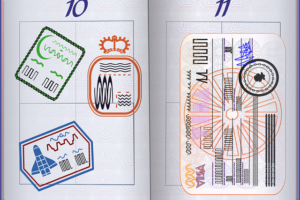Higher Education in The US from Nepal

Our competent, well-trained and experienced consultants at Edwise Foundation have successfully assisted about 5,000 + students (as on Spring 2020) with their study plans and F-1 visas to the U.S. Higher Institutions.
We carefully scrutinize student profiles with respect to their GPA, career aspirations, Test Scores, Resumes, and more importantly their paying capacity.
We collaborate with hundreds of universities (both contractually and otherwise) in the USA, and place students ensuring that they fit well into the universities we and students/families have agreed upon.
We are open to working with any of the universities ranging from small Liberal Arts Colleges to Top-Tier Research Universities for any degree (Associate, Bachelor’s, Master’s & Doctorate).
Many of our students are pursuing their studies in elite universities; Drexel University, Dartmouth College, Northeastern University, Ohio State University, the University of Texas at Austin, University of California Berkley, University of Cincinnati, etc. with substantial financial support.
We have a flair for assisting students with Common Application and its paper works like CSS Profile, ISFAA, Fee Waivers and a number of other things.
We also assist students with the external transcript evaluation process via NACES depending on the university requirements.
We can give proven insights into Early Decision, Early Action and Regular Decision so that students and their families have a clear sense of which plan they should opt for.
We have been highly successful in getting a large number of elite students the merit or need-based aids which include partial and full scholarships including full-ride.
Every year we cater to more than 100 graduate students and support them with the Graduate Assistantship (Teaching, Research or Administrative) to study Masters or Doctorate Degrees.
Nearly 100 percent of our students at Edwise get at least a 50% scholarship of the tuition fees.
Our consultation is very straight-forward. We offer insightful answers precisely to any questions you have whether these are related to admissions or funding or career prospects.
Our U.S. advising team comprises graduates from the University of Pennsylvania (an Ivy League University), University of Arkansas Little Rock, St. Cloud State University, and many others who actually know what it feels like studying and succeeding in the U.S.
They possess excellent experiences of the CPT and OPT, and talking to them would significantly help you to make your experiences worthwhile during your studies and stay in the United States.
Our consultants work hard to help students understand what the visa requirements mean in relation to their circumstances. We strictly require students to submit genuine information in DS 160.
You don’t need to submit the financial paper works unless asked on the interview day, but it is critically important to make sure you have enough funds in your or your sponsor’s bank account and stable income sources.
We are more than happy to share our practical thoughts on the F-1 visa process.
Smart Assistance with F-1 Interview for Higher Education in US from Nepal
We don’t teach you visa answers but offer practical insights into what the Visa Officers are looking for in you during the interview. We help you communicate the ideas organically, brush up your interpersonal skills and elevate your confidence level.
The F-1 visa is indeed a reflection of how clear you are in terms of what you’re going to be, how you are affording your education and what makes you depart to the U.S.
The interview process seems to be touching upon everything you have accumulated so far, although students sometimes find it otherwise.
Students need to take this simply as a conversation with the visa officer, not as a scholastic answer that they can give to their professors.
We advise students not to memorize or rehearse the answers but to talk to the officer originally. Attending the visa session at USEF can help you develop an understanding of how the process works.
We attend the education and immigration workshops in AIRC, NAFSA and in other platforms in the USA every year and go through the journals and other literature to better assist students with the visa process.
Areas of Expertise in Consulting on Higher Education in US from Nepal
We are well equipped with the expertise required to offer consulting services on US Higher Education. Some of our expertise includes, but not limited to:
- Profile assessment with respect to admission and scholarship/funding
- Career guidance
- Application support: University Application, Common Application, CSS Profile, ISFAA, DS 160, etc.
- Writing Support: Application Essay, Statement of Purpose, Writing Samples, Resume, etc.
- Smart guidance on the university selection process: ‘Right-match’ is a key philosophy.
- Assistance with scholarship/graduate assistantship navigation
- Connection to the alumni, admission officers, departments and current students, as required.
- Transparency in correspondence with the university officers.
- Proven strategies into the F-1 interview
- Key information on CPT and OPT
- Expert opinions on Life in the United States
Suggestions to Nepalese Students seeking the U.S. Higher Education
We would like our students to thoroughly research the universities in terms of their program strength, support activities and the costs.
Please make sure you have concrete financial planning for the entire period of studies if you don’t have significant financial support (Scholarships/Assistantship) from the universities.
Off-campus jobs are illegal except for the ones endorsed by DSO after the 1st year.
GPA, SAT/ACT, and TOEFL/IELTS and Essay play a key role in admissions and scholarships at the undergraduate.
We strongly advise you to apply early so that you can be considered for financial support from the U.S. universities.
Most of the top elite graduate programs require strong GRE/GMAT scores depending on the nature of the program, high IELTS/TOEFL score, Statement of Purpose, Letters of Recommendation and Resume.
If you are looking for a research assistantship, we encourage you to apply early and find the Professor whose research interests align with yours.
During the application process, you can make a reference to social media, blogs, search engines, consultancies or any internet information, but it is crucial for you to make sure you’re using the accurate source.
You will need to thoroughly check the credentials of the consultancies, their success history, transparency of the service fees and the profiles of the consultants before you choose any.
By law, Nepalese consultants don’t need to have any professional credentials to offer consulting services.
Using EdUSA, the U.S. Government Agency is a great place for the ones who are smart enough to develop an understanding of the process using S abundant resources they house.
We strongly advise students to use the EdUSA/USEF for transcript attestation, university information sessions, visa info sessions, and pre-departure sessions.
For a personalized consultation, you can consider working with Edwise Foundation where you get not the generic but the precise answers meeting your parameter.
We have answers to WHERE, WHICH, WHAT, HOW, WHY assisting you with your decision-making process.
Our support with an F-1 interview is very unique. Based on what we have experienced over the past 15 years, we always try to help you talk to the Visa Officer persuasively, precisely and organically if you are truly intending to study, are prepared to afford the fees and are willing to return home.
If these sound like what you are looking for and wish to make your dream come true, please come talk to us for a ‘free consultation’.
About the U.S. Higher Education
The USA, also known as the land of opportunity, is considered as the best destination for higher education by international students from all around the world. The States has the world’s largest international student population which is more than a million.
The diversity in schools shows proof of the welcoming nature of the USA for students from around the globe.
The world-class universities, known for their best courses with various learning opportunities make this country tempting international students. Nepalese students are not an exception.
Excellent Academic Quality
The United States is known for having one of the world’s most effective university systems with an outstanding number of programs in any given area.
These programs are then quality monitored by various higher education accreditation bodies.
At the undergraduate and graduate level, students are provided with various learning opportunities including participation in research, internship, field visits, assistantships, and more.
Particularly, at the graduate level, students have various opportunities to work directly within their field of study.
The quality of programs and career-oriented education systems make U.S. degrees well recognized throughout the world for their excellence.
Educational Opportunities
The United States is home to several thousands of colleges and universities, which means students, can choose what’s best for them comparing cost, courses, quality, location and many more. It also means that U.S. has something for everyone.
These higher education providers can sometimes offer better courses and curriculums in one particular field than others and it’s all up to the students to understand what’s best for them.
Technology
U.S. universities are known for being updated with technologies on their campuses. The universities provide latest technologies in classrooms, labs and other resources.
Students in any field will have a taste of latest technologies in their related fields within the universities themselves.
Opportunities for Research, Teaching, and Training
International students are highly valued in the United States. This is one reason why students are given opportunities to work with their professors and department in researches, teaching, and training.
Particularly in case of graduate students, they can get research assistantship, teaching assistantship or graduate assistantship where they will have great practical experiences handy for their career.
Huge Flexibility
Although there are some requirements for completing courses, students have a wide variety of choices to meet such requirements. Most of the time, students can choose classes at their appropriate times and days as well.
They have options to choose different professors for the same courses.
A lot of courses required for graduation can have alternative options available as well.
Understanding the US Education: Important Information for Nepalese Students
Accreditation
In most countries, the Ministry of Education governs and controls Educational Systems. In the USA, it is a non-governmental volunteer process in which accrediting agencies recognized by the Department of Education accredit institutions.
The accrediting agencies recognized by the Department of Education can have Regional or National Scope.
Regional accrediting agencies accredit institutions within six geographic regions of the USA, for example, The Middle State Association of Schools and Colleges, The New England Association of Schools and Colleges, The North Central Association of the Colleges and Schools, and so on).
National Accrediting agencies accredit specialized institutions or programs all across the USA.
There are professional/specialized or programmatic accrediting agencies as well. It is important to note that the Council for Higher Education Accreditation also recognizes organizations that accredit institutions.
Graduate Education
Graduate Education leads to Master’s, Professional and Doctoral Degrees in the USA. Some of the examples are MS, M Eng., MBA, M. Ed., MFA, M. Arch., etc. Graduate Education in most of the other countries is known as ‘Post Graduate Education’.
Master’s Degree is the most flexible and popular graduate degree, which requires one to two years of coursework.
In most arts and sciences disciplines, a master’s degree is not considered a prerequisite for doctoral study.
The doctoral degree is designed to train research scholars in a specific field. Ph. D. is the most common degree awarded in academic fields of study. Students can also earn other doctoral degrees in professional fields such as education (Ed. D.), business (D.B.A.).
Doctoral programs involve advanced coursework, seminars, and the writing of a dissertation/thesis.
Undergraduate Education
It typically takes you four years to complete the Bachelor’s Degree in the US. You can begin your studies either at a Community College or a 4-year University/College.
During your first two years, you will generally need to study a wide variety of courses in literature, sciences, social sciences, the arts, history, and so forth regardless of your major.
These courses are expected to help students develop a strong foundation prior to focusing on a specific field of study.
You can change your major multiple times; however, it can sometimes require you to take more courses which means more money and time.
Examples of undergraduate education include the Associate of Arts/Science or Bachelor of Arts/Science.
Public and Private Institutions
Institutions in the USA are both private and public; which however has no relationship to educational qualities. U.S. Institutions are autonomous and independent in terms of operation. The role of the government bodies is only with the funds.
Private institutions receive only a little or no funds from the government but public institutions receive most of the funds from the government.
They still receive funds from tuition fees and private donations.
Usually, private universities in the USA tend to be more expensive than public universities. Private Universities are either religious or secular and for-profit or non-profit.
In Nepal, education is always the responsibility of the Ministry of Education. Nepalese students can choose either private or public institutions based on their learning styles, academic abilities, and financial strengths.
Colleges and Universities
There is no clear distinction between colleges and universities in the context of the USA. However, colleges tend to be and emphasize interactive teaching.
They offer Associate’s and Bachelor’s Degrees. Except for an absolutely few numbers of colleges, they don’t emphasize on research works.
Universities tend to be research-oriented and they often comprise a number of divisions, including graduate and professional schools. They may place less emphasis on undergraduate teaching.
Liberal Arts Colleges
Liberal Arts colleges emphasize interactive instruction, small class size and direct contact with faculty. They are focused to develop general knowledge in students. Academic courses are oriented towards humanities, social sciences and natural sciences.
They are both public and private. Some of them are among the most prestigious institutions of higher education in the USA.
Community Colleges
Institutions in the USA offering two-year degrees (Associate of Science or Associate of Arts) are referred to as Community Colleges.
These degrees are either terminal (vocational) or transfer (the first two years of a four-year program).
Scholarships and Assistantships
A scholarship is a form of assistance that students are not required to repay.
Scholarships are based on merit, a special quality or need. Scholarships are very competitive and offered only to the students who have excellent achievements in academics, debating or athletics (There are other considerations as well, such as standardized test scores, Statement of Purpose, etc.).
The institutions offering full-scholarships are very limited. Some of the institutions award cultural scholarships, which cover only the partial tuition fees.
Students should be well prepared to cover the remaining costs. Some institutions also offer scholarships based on the documentation related to their needs, but again the number is very few.
Some of the universities/colleges have the policy to offer scholarships only after the first year.
Assistantships are offered mostly to graduate students. Assistantships are aids with duties in teaching, research or school management.
Usually students receiving the assistantship will receive monthly stipends plus a partial or full tuition waiver. There is a competition for the assistantship positions; however, assistantships are available in most of the universities.
Rankings
Rankings are a list of the U.S. institutions in rank order based on combination of factors, such as class size, tuition rate, alumni donations, etc. In the U.S.A, rankings are made by organizations, newspapers, magazines or academics groups.
Some of the ranking systems that are very popular among Nepalese students are U.S. News & World Report, The Princeton Review and The Washington Monthly College Rankings.
Rankings are quite helpful when it comes to choosing schools or comparing schools, but we advise that students have an idea about how rankings are made.
Rankings are too good to know but we strongly suggest you not to rely on it.
It is important for you to know what for an institution is ranked #1 or #2 (Is it class size or researches or peer review or graduation rates?) We believe it is your judgment about the overall appeal of the institutions that matter.
We want our students to focus on the strengths and attributes of the institutions. We strongly believe that unranked institutions impart equally or even better quality education.
Transfer of Credits
Students from Nepal (Tribhuvan University, Kathmandu University, Pokhara University, and Purvanchal University) are eligible to transfer credits they have obtained towards U.S. Bachelor’s Degrees in the USA.
It is important for you to understand that the recognition of the Nepalese credits is different from one school to another.
The best way would be to submit the evaluation report prepared by any of the member agencies listed in NACES (www.naces.org) or AACRAO (www.aacrao.org). If you have British ‘A’ Levels, you can explore the possibilities for Advanced Standing.
CPT (Curriculum Practical Training)
Generally speaking, CPT is an integral part of the academic program that helps the students gain practical knowledge in their field of study.
Co-operative Education, Internships, work/study program etc. that exemplify CPT are what the students undergo mandatorily as a part of their programs. The institutions are required to have a cooperative agreement with the sponsoring employers.
Non-immigrant Students (only F1) are authorized for employment in the United States of America during the college or University degree level programs.
To be eligible for CPT, F-1 students need to be enrolled for a minimum of one-year academic program (other than few graduate cases) and the training will be granted through the DSO (Designated Student Official) in coordination with United States Citizenship and Immigration Services.
OPT (Optional Practical Training)
Non-Immigrant Students (Graduate and Undergraduate) who entered the United States on F-1 VISA are authorized to work for minimum of two consecutive semesters in the field of study.
OPT can be extendable for a maximum of 29 months for the students in the field of Science, Technology, Engineering and Mathematics. OPT is awarded to students to achieve practical exposure in the same field of study.


